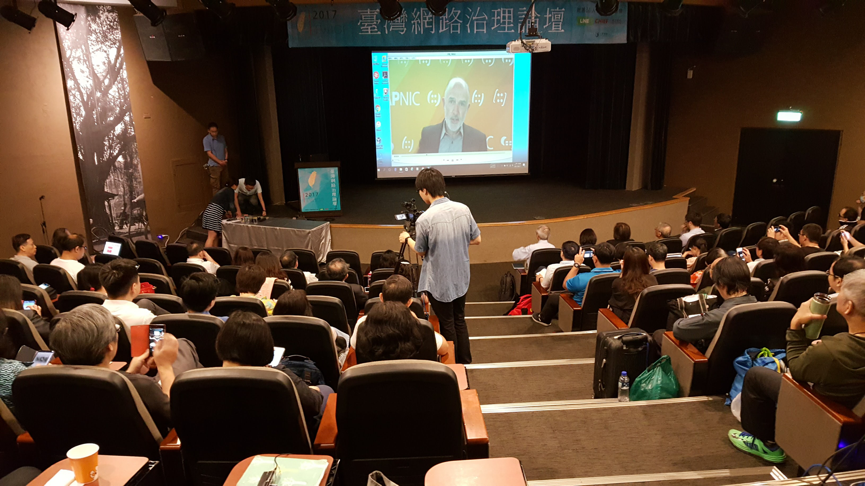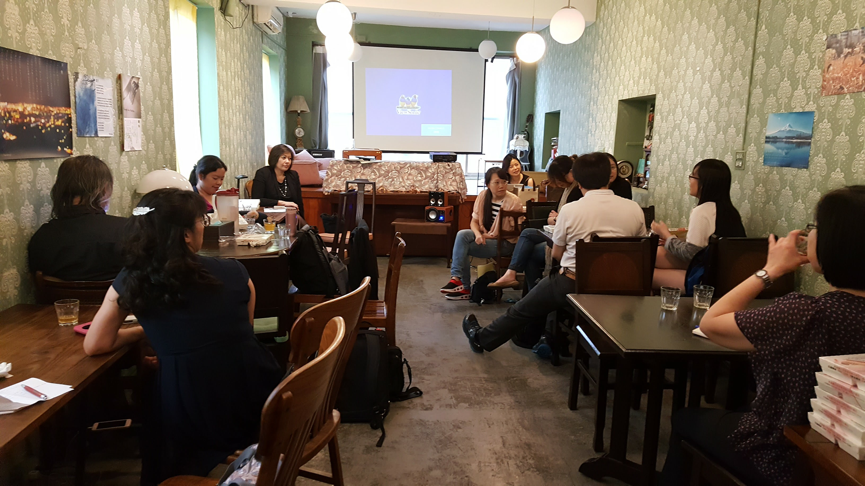
Last month, I attended my first Taiwan Internet Governance Forum (TWIGF), held in Taipei.
I was inspired to join this year’s event after attending last year’s Asia Pacific regional Internet Governance Forum (APrIGF), which was also held in Taiwan’s capital. The APrIGF opened my eyes to the concept of Internet governance and highlighted to me that there are many people and organizations in the Asia Pacific who care about human rights, cybersecurity, privacy, and other Internet Governance issues.
Taiwan hosts many technical exhibitions, summits, forums and conferences each year that focus predominantly on cybersecurity, IT, IoT, and smart cities. Given that we have become so reliant on the Internet in our day-to-day lives, it’s important that we become more aware of Internet governance to understand concepts such as Internet neutrality as well as our rights on the Internet (including the prevention of violence, hate, and rumours that harm our future economy and society).
Focusing on local issues
This was the third TWIGF held since 2015 and, as in previous years, it attracted stakeholders from the government, civil communities, technical communities, the private sector, media, enterprise, and academia.
I was part of a 20-person organizing committee, each from a different stakeholder group, who was tasked with identifying key topics we would discuss during the one-day event (this was the first time topics were decided by a committee and not by sponsors or government).
As this was a local IGF, I wanted to focus on what had been the most important issues reported on by the Taiwanese media in the past 10 years. These issues included (in order of coverage) privacy and data protection, e-commerce, and cybersecurity — all of which were eventually incorporated in the seven topics that were discussed at the meeting (see box below) as well as at the inaugural TechGirls session that was held during the lunch break.
TWIGF workshops
- Controversial speech mitigation; Privacy and personal information protection
- Impact of regulation and demand of talent on Internet decentralization
- Cybersecurity challenges and prospects in the era of artificial intelligence
- The impact and evolution of the sharing economy
- Preventing and dealing with cyber bullying through the multistakeholder governance model
- The challenge of the Internet exchange environment in Taiwan
- Outreach and awareness for Internet governance
For people working in IT, most of the content was easy to understand. However, for many participants who came from other industries, concepts such as IXPs, peering, and decentralization were new and took some time to comprehend — thankfully everyone was enthusiastic to learn.
We also talked about how to spread recognition of Internet governance to public sectors, politicians, and the general public to complement the government’s and the public’s enthusiasm to embrace the digital economy.
Launching TechGIRLS Taiwan
As part of my duties for TWIGF, I had the honour of organizing and hosting the first TechGirls meet-up in Taiwan.
Around 20 people joined the lunchtime meeting, which began with a short technical discussion about blockchain technology before we opened the floor for all participants to share their work and education experience, and ideas for improving gender equality in Taiwan.
Most of the women shared positive experiences from their schooling and their career. Being a woman in Taiwan is blessed compared with other countries — we are independent and free, and it is genuinely hard to find gender inequality. Having said this, some women at the meet-up still shared concerns about current and future inequality, which is being magnified by the Internet.
After the success of our first TechGirls meet-up, we hope to hold more gatherings on a monthly basis, as well as to connect with other female technology communities. I hope to see you at one of our meet-ups in the future.
Special thanks to APNIC and Dr Kenny Huang, APNIC EC member, who sponsored the space to hold our meet-up in a coffee shop near the TWIGF, as well as to TechGIRL Japan for the inspiration.
Read more: TechGIRL: small beginnings, bright future
Embracing the multistakeholder model
An important element of discussions during the day was the use of the multistakeholder model, which IGFs are internationally renowned for. This allowed the multiple stakeholders who were present to build consensus and trust — each stakeholder could express its opinions without any restrictions. I believe this model of discussion is important in a democratic society so that policy is developed to include the opinions of everyone who uses and is impacted by technology/society.
We plan to hold TWIGF again next year and wish to make it a long-term fixture in the Internet/technology event calendar. We are also discussing the possibility of holding a youth IGF for students who are interested in learning more about Internet governance. The more people who participate in events such as TWIGF, the more people will care about Internet governance, which will help with building a healthier Internet ecosystem locally and globally.
Ying-Chu Chen is an Assistant Research Fellow at the Taiwan Institute of Economic Research.
The views expressed by the authors of this blog are their own and do not necessarily reflect the views of APNIC. Please note a Code of Conduct applies to this blog.



I think the formal name, which means the official name used by IGF, is Taiwan, China.